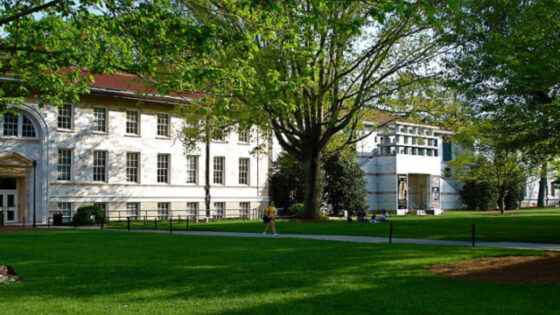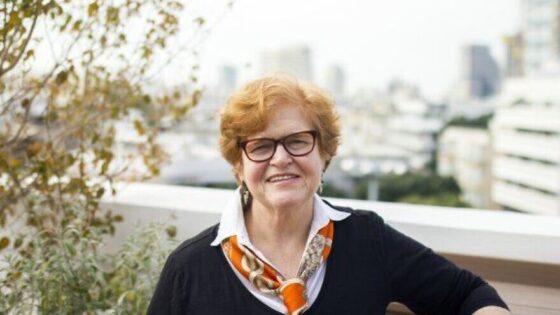From www.danielpipes.org | Original article available at: www.danielpipes.org/article/1032
“It was quiet in [Cooper Hall] 464 Thursday night,” noted the student newspaper, “where [Sameeh] Hammoudeh’s 6 p.m. Arabic IV class was scheduled to meet. Two students who hadn’t heard of his arrest came to class, and a substitute was assigned to teach in Hammoudeh’s place.”
Hammoudeh missed teaching his Arabic class last week due to a slight inconvenience: He had just been charged with racketeering and conspiracy to murder.
In fact, he was one of eight men indicted at a U.S. District Court in Florida as “material supporters of a foreign terrorist organization,” that organization being Palestinian Islamic Jihad (PIJ).
It is striking that three of those eight are academic specialists on Middle Eastern and Islamic subjects. Their arrests reveal to what extent Middle East studies is a field that serves as an extension of the region’s radicalism. (Other defendants teach computer engineering, manage a medical clinic, own a small business and serve as imam in a mosque.)
The three instructors on Middle East topics all have establishment credentials:
* Ramadan Abdullah Shallah, 45. Born in the Gaza Strip, he earned a doctorate in economics from the University of Durham in the United Kingdom.
He arrived in Tampa, Fla., in 1991, taught Middle East studies as an adjunct professor at the University of South Florida (USF) and headed the World and Islam Studies Enterprise (WISE), a think tank dealing with Middle East issues that was affiliated with USF during the period 1992-95. He left USF in 1995 and later that year turned up in Damascus, where he is now secretary-general of PIJ.
* Bashir Musa Mohammed Nafi, 50. Born in Egypt, Nafi has two Ph.D.s and was a researcher at WISE. He was deported for visa violations in 1996 and went to England where, as an Irish citizen he lives in Oxfordshire. He teaches at two London institutions, Birkbeck College of the University of London (“Social and Political Issues in Islam”) and the Muslim College (“State and Society in Islamic History”).
Nafi is also associated with the Institute of Contemporary Islamic Thought (which in 2000 published his analysis, “The Rise and Decline of the Arab-Islamic Reform Movement”). He has written for the Virginia-based Middle East Affairs Journal and a book of his appeared in Arabic in 1999, “Imperialism and Zionism: The Palestinian Case.” (He uses a pseudonym, Ahmad Sadiq, when writing for militant Islamic journals.)
* Sameeh Hammoudeh, 42. Born in the West Bank, he worked at the Arab Studies Society in Jerusalem before reaching America in 1992. He began teaching at USF in 1995. At the time of his arrest, he lived in the Tampa area, taught Arabic at USF and was working toward a master’s degree in religious studies at that university.
All three alleged terrorists succeeded in talking the academic talk, fooling nearly everyone. Shallah wrote in 1993, in his capacity as director of WISE, that the organization’s long-term goal is “to contribute to the understanding of the revivalist Islamist trends, misleadingly labeled ‘fundamentalist’ in Western and American academic circles.”
Almost any North American academic specialist on Islam could have written those same sneering and duplicitous words. Many do.
The three passed for genuine scholars. Carrie Wickham, a specialist on Egyptian Islam at Emory University, said she “felt deceived” on learning who Shallah really was and expressed surprise that “a serious intellectual counterpart” like him could also be a terrorist.
Even after the indictment, Arthur Lowrie, formerly vice chairman of USF’s Committee for Middle Eastern Studies, praises Shallah for his “good scholarly work.” And Gwen Griffith-Dickson, director of Islamic studies at Birkbeck, describes Nafi as “highly respected,” lauding him for his efforts “with energy and commitment, to encourage critical thinking about religious issues and academic balance in his students, and thus to encourage social responsibility.”
That three accused terrorists passed without suspicion as genuine Middle East studies scholars points to the crisis in this academic discipline. This academic field is already criticized for providing refuge to what might be called intellectual terrorists -scholars known for their extremism, intolerance, and dishonesty. Now we learn it apparently has been harboring the real thing.
Conclusion: This field must be scrutinized very closely, especially by the U.S. Congress, which provides vital subsidies to Middle East studies programs.
From www.danielpipes.org | Original article available at: www.danielpipes.org/article/1032




